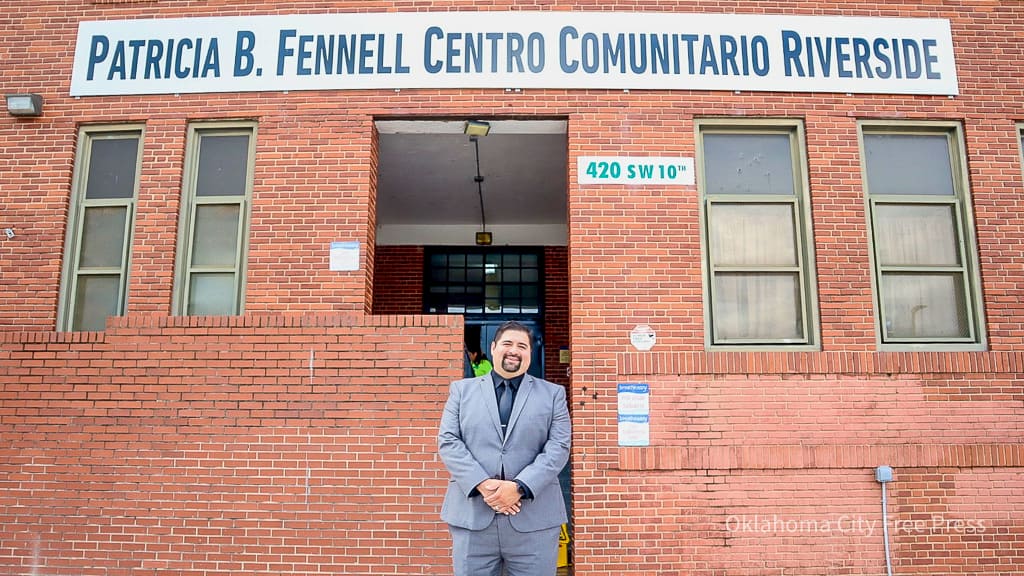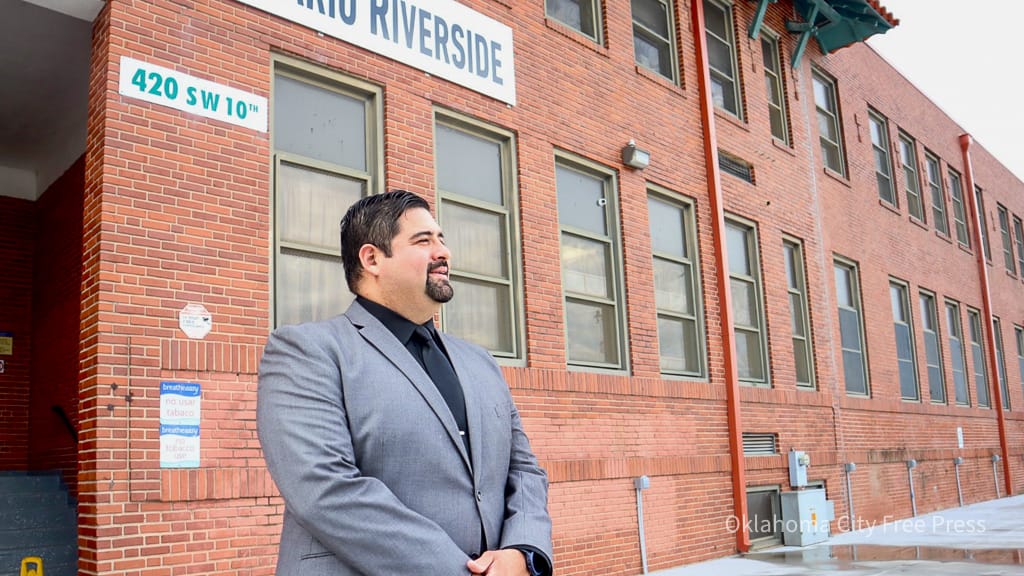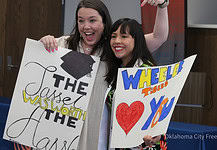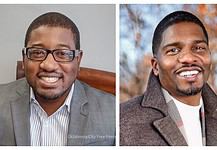Last Updated on August 9, 2023, 2:16 PM | Published: August 9, 2023
OKLAHOMA CITY — Salvador Ontiveros is the new President and CEO of the Latino Community Development Agency. He follows the long-term leadership of Dr. Raul Front, who announced his retirement in June.
Who is Salvador Ontiveros?
Ontiveros, who most recently was chief financial officer at the Oklahoma Contemporary Art Center, began his first day on Aug. 1 overseeing the 33-year-old organization that administers various programs and services to support the underserved Latino community.
“This for me is a dream job where not only did I grow up and benefited from this place, but my heart is in the community and I want to serve in whatever capacity,” Ontiveros said in an interview with the Free Press.
His connection to the agency stems from childhood when his mother would bring him to the child development program. During his middle school and high school years, he participated in several programs, such as the HIV and STD prevention and peer educator program.
Originally from Torreon, Coahuila, Mexico, he secured a full-ride scholarship to Oklahoma City University due largely in part to his strong connections with the LCDA. He received both a Bachelor of Business Administration and an MBA from OCU.
“I mean, what a full-circle moment, when I was here and benefited when I was single digits in the child development program throughout my middle and high school and college years to come back 20 years later and to provide and serve in this capacity,” Ontiveros said. “I’m just excited.”

Ontiveros, who began his career in business and finance, has served in the non-profit sector for over 14 years. He highlights one particularly cherished experience in his career – his 7-year tenure at the Oklahoma Contemporary Arts Center – where he worked as CFO and director of finance and human resources.
“Through that experience, I really learned to manage many different aspects of the nonprofit organization and I could just continue to feed my need to serve,” he said.
The Vision for LCDA
When asked about his vision for the organization, Ontiveros said he must first meet a few challenges in order to make his envisioned plans come to fruition.
- The first is to gain a deeper understanding of all the programs offered by the LCDA in order to find different ways of improvement.
- The second is to get out in the community and establish connections with people, partners, and other organizations to better understand community needs and serve them more efficiently.
- The final step is to build relationships with corporate sponsors and donors with the purpose of expanding funding to drive the growth of the LCDA into a larger organization.
“So those are the three pillars of my plan at least for the first six months to a year, – learning what we currently have, going out to the community and understanding what the needs are, what’s working and what’s not working, and forging relationships with corporate sponsors, foundations and other donors,” Ontiveros said.
LCDA holds unique status in the community
The LCDA, founded in 1991 as a response to address the needs of the Latino and Hispanic community, is a community-based non-profit organization that offers a diverse range of programs and services in education, treatment, child development, and prevention initiatives.
Janys Esparza, director of treatment programs, emphasizes that the LCDA holds a unique position as the only agency in the state that is entirely bilingual and bicultural, which gives the agency the ability to effectively reach more people transcending cultural and language barriers.
“[When] people enter this door, they need to feel that somebody looks like them. They need to feel that people understand them,” Esparza said. “I understand their issues, not because they speak the same language but [because of] the culture. So, we are unique.”
Brianna Garcia is a freelance journalist covering local politics and culture for Free Press. She has a degree in Journalism from the University of Central Oklahoma.











